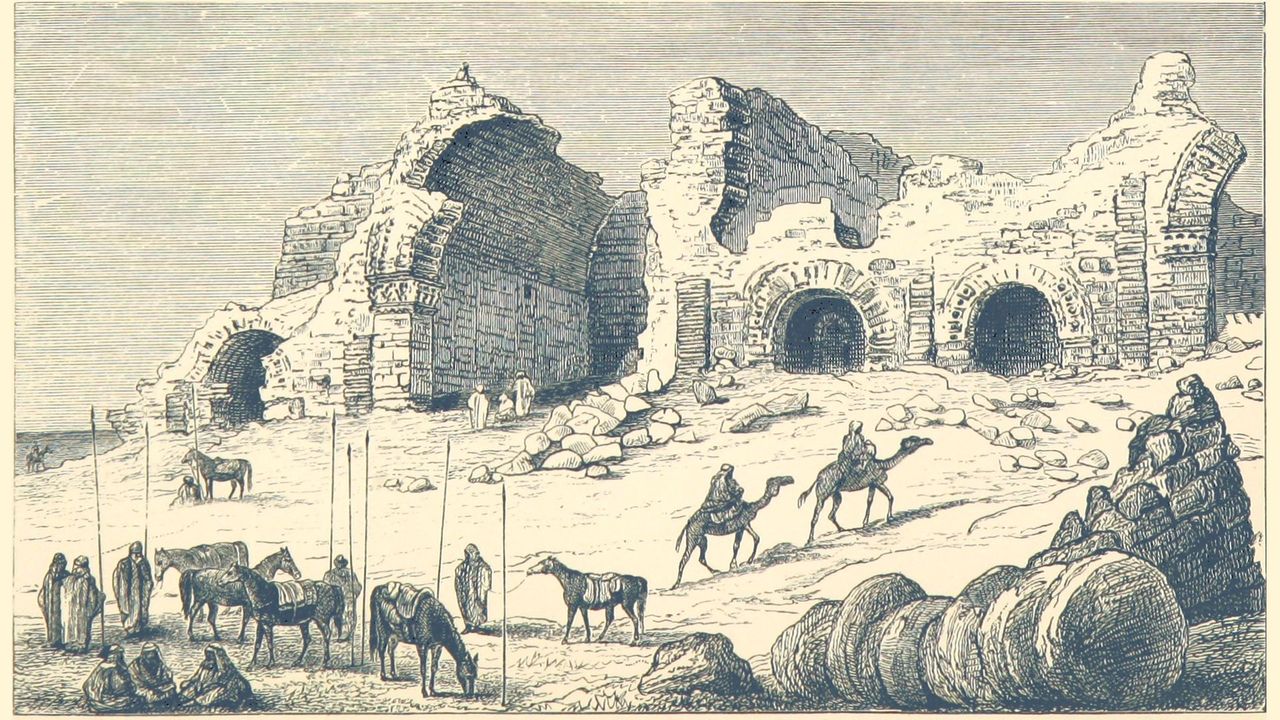Considered the pioneer of those who introduced philosophy into Arabic poetry: Who is Bashar ibn Burd?
Since his eyes were blind from birth, he acquired all the knowledge about poetry and philosophy by listening to others and having others read written sources.

( ? -873) Khorasan poet. He is considered the pioneer of those who introduced philosophy into Arabic poetry, as he adopted the Mu'tazila thought, which defends rationality in Islam, and worked with poems he wrote in Arabic.
Bashār ibn Burd (nicknamed al-Mura'ath, meaning "the wattled"), was a Persian poet of the late Umayyad and early Abbasid periods who wrote in Arabic. Bashar was of Persian ethnicity; his grandfather was taken as a captive in Iraq, but his father was a freedman (mawla) of the Uqayl tribe. Some Arab scholars considered Bashar the first "modern" poet and one of the pioneers of badi' in Arabic literature. It is believed that the poet exerted a great influence on the subsequent generation of poets.
Born near Basra, died in Baghdad. There is no extensive information about his life. It is said that he came from a high family who came from the Toharistan region of Khorasan and settled in Basra. Since his eyes were blind from birth, he acquired all the knowledge about poetry and philosophy by listening to others and having others read written sources. He lived as a slave for a while with a wealthy Arab woman, and when the woman gave him freedom, he wandered around in Basra and Baghdad.
Bashar ibn Burd, a powerful poet, expressed his views on philosophy in his poems. Due to his interest in philosophy, he met Vasil ibn Ata, the founder of the Mutezile school, and became close. It is said that he got his thoughts about this school from Wasil ibn Ata. According to written sources, he had nothing to do with religion, he was irreligious. He did not value the moral rules recommended by the religion of Islam, he liked to live according to his heart, to think independently and according to the principles of reason. Some sources claim that it is connected to the ancient Iranian religion, especially the beliefs put forward in the Avesta. His closeness to Mutezile was also due to this ancient Iranian religion. In one of his poems, it is widely believed that he explained his beliefs by saying "The earth is dark and fire is light, therefore fire has been worshiped since its existence".
For Bashar ibn Burd, who praises women, entertainment, and drink in his poems and defends them with a strong expression, living is to enjoy the world, to stay away from pain and sadness as much as possible. Most of the people living on earth are on the wrong path under the influence of religions, they did not turn into evil on their own. In one of his poems, Caliph Mahdi was angered when he praised God because he did not have eyes to see the evils of the world and bad people, and that beauty and beauty had no other meaning than enjoying life, and therefore it was unnecessary to see all that was going on, and he was forbidden to praise women in his poems. He died at the age of ninety when he was hit with seventy sticks after he severely vilified Vizier Yaqub ibn Dawud, who was known for his bad behavior in society.
According to Bashar ibn Burd, the best way is the way of reason, the fact that man was created from clay is a lie. Even if it is true, it is much better to worship the sun, which illuminates the whole universe and gives it life, rather than clinging to and worshiping a person created from clay. All we know are impressions obtained from the events we have lived through and from the environment, human beings are the most superior being because of the intelligence they carry. The source of our thoughts is our senses. Happiness is achieved by living away from sadness and pain, living day to day, and staying away from bad things, reason, and life show people what rules to follow and what kind of behavior principle to choose, since the universe we live in is real, adopting a domain that exists only in thought, There is no need to linger with longing for reunion.
Bashar ibn Burd had a long-lasting influence on those who came after him, as he gave importance to reason with the Mutezile thoughts he adopted, and applied a moral principle arising from life, and he broke new ground with his poems that included philosophy topics. Although he does not give a regular place to philosophical problems in his poems, there are many verses containing the interpretations of Mutezile views. For this reason, he was recognized as an influential bard rather than an independent sage. His poems, which circulated for a long time and influenced many Arab poets and thinkers, were later collected in a "Divan".
